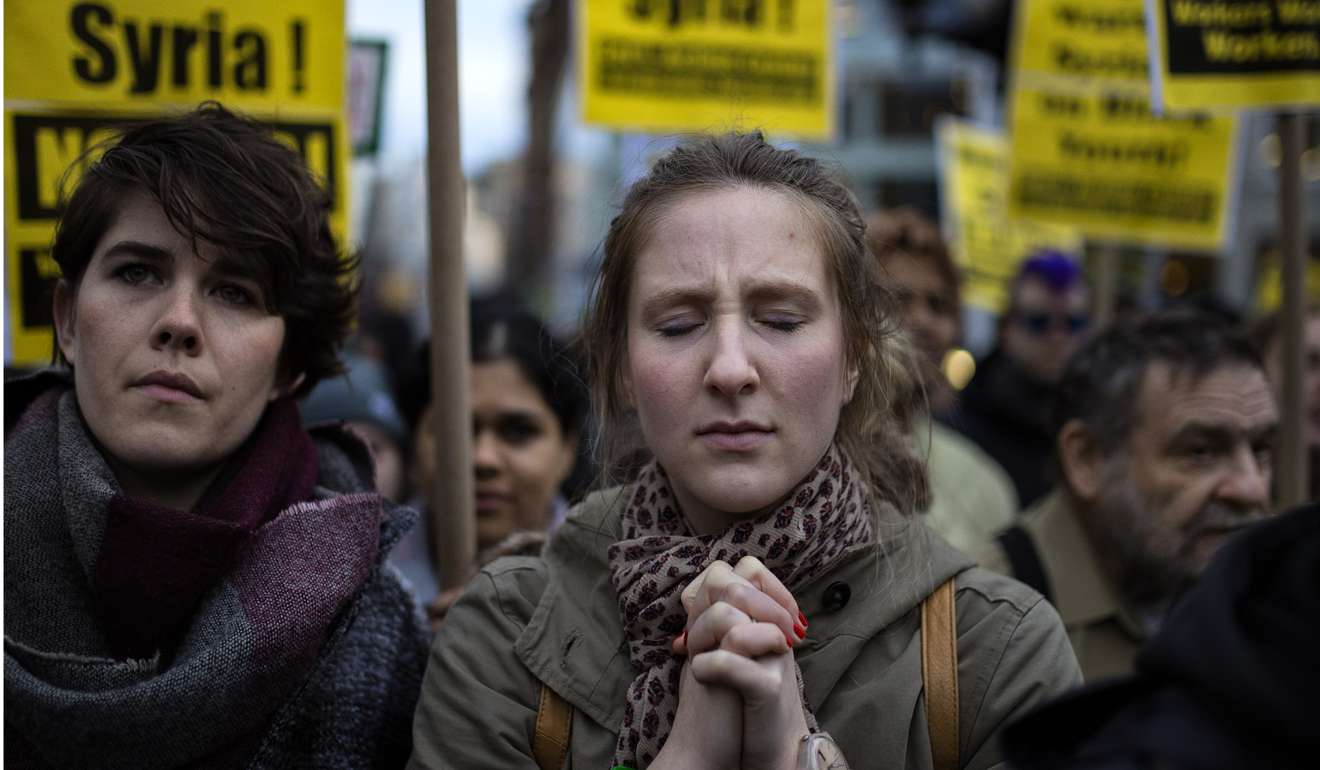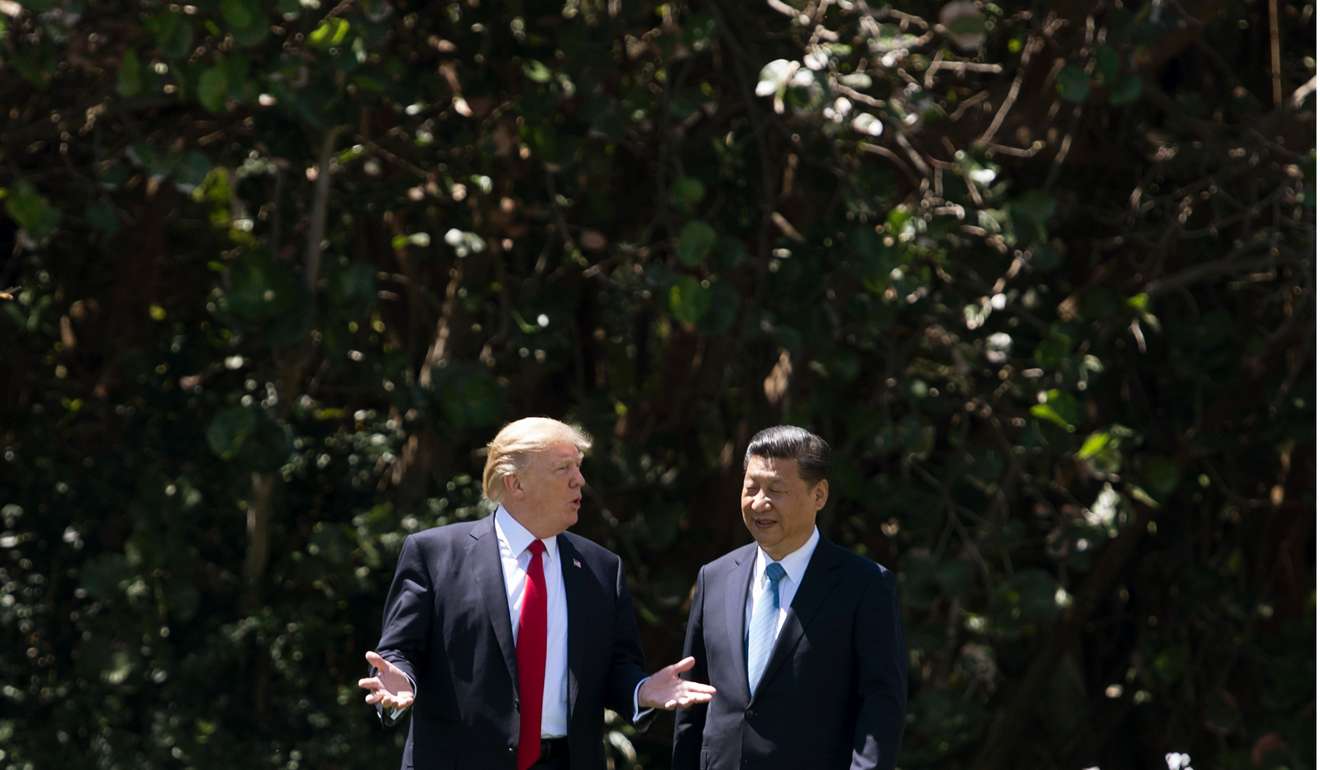
Donald Trump was right to strike the Syrian regime. Now what?
Niall Ferguson says the US president made the correct call to respond to Assad’s chemical attack, showing up Obama’s failure in 2013, and hopes the bombing is part of a coherent strategy on the Middle East

When a president finds his approval rating in the doldrums and Congress slow to enact his domestic agenda, he naturally turns to foreign policy in search of quick wins. That, at any rate, is the cynical interpretation of US President Donald Trump’s decision to launch 59 Tomahawk missiles against a Syrian airfield in Homs, in retaliation for Bashar al-Assad’s use of chemical weapons in an attack that killed more than 80 civilians.
My view of Trump’s action is more positive. It is not that I think one salvo of missiles is going to end the civil war in Syria. Of course it won’t. But I think we can now discern the beginning of the improvement in US foreign policy we have been waiting for ever since president Barack Obama packed his bags, collected the biggest book advance in history and departed to the eight-bedroom schloss in Kalorama where he now resides.
Bear in mind that Obama’s worst mistake as president was his indecision about Syria. Back in 2011, as you may recall, he told Assad to “step aside”. He didn’t. In February 2012, Obama tried going through the UN Security Council, but Russia and China vetoed action on Syria. Under pressure from Republicans to arm the Free Syrian Army, Obama refused. Defence secretary Leon Panetta explained that arming the Free Syrian Army would lead to “a terrible civil war”. A terrible civil war happened anyway.
In the summer of 2012, Panetta, secretary of state Hillary Clinton, CIA director David Petraeus and chairman of the joint chiefs Martin Dempsey all pressed Obama to arm rebel groups. Obama reluctantly authorised CIA training of just 10,000 rebel fighters. These fighters prove useless.

It was in the wake of these failures, in an attempt to sound tough, that the White House warned Assad that if he used chemical weapons he would “cross a red line”. Guess what: he used them anyway. In August 2013, Obama’s red line proved to be a pink dotted line when he announced that he would seek congressional approval for military action.
Not only did Obama leave Syria in ruins, he left American credibility in the region in a similar state
Enter the Russians, who said they would persuade Assad to hand over his chemical weapons to avert any such action. In a lame address to the nation, Obama announced that America was no longer the “world’s policeman”. Less than a year later, Islamic State murdered James Foley and other Western hostages, leading Obama to authorise airstrikes in Syria, but only against Islamic State targets. The Russians intervened on a much larger scale in late 2015, deploying not only jet fighters but also ground forces to Latakia and warships to the Caspian Sea. They directed their fire against Assad’s opponents.
Obama has said he remains “very proud” of his decision not to enforce the red line. I find that hard to believe. Syria lies in ruins. The total death toll lies somewhere between 320,000 and 470,000. The Syrian Network For Human Rights puts the number of civilian fatalities at 207,000. More than 10 million people have been driven from their homes; half of them have fled abroad. Not only did Obama leave Syria in ruins, he left American credibility in the region in a similar state. Matters were hardly improved by his readiness to conclude a nuclear “deal” with Iran that did nothing to restrain that country’s intervention in support of Assad.

The termination of this shameful saga of American impotence is surely to be welcomed. Not convinced? Well, one indication that a decision is really good is when really bad people line up to denounce it. Step forward Ann Coulter, scourge of the left, author of books with titles such as Adios, America: The Left’s Plan to Turn Our Country Into a Third World Hellhole, and until this point an ardent fan of Trump.
He told us he would be the president of America, not "the world." Could somebody show him pictures of Americans raped & killed by illegals? https://t.co/zhdohjXgdf
— Ann Coulter (@AnnCoulter) April 7, 2017
“Trump campaigned on not getting involved in Mideast,” Coulter tweeted shortly after the Tomahawks struck. “Then he saw a picture on TV.” And: “He told us he would be the president of America, not ‘the world’. Could somebody show him pictures of Americans raped & killed by illegals?”
Next up: Glenn Greenwald, scourge of the right, darling of Guardian readers, and confederate of Edward Snowden, the “whistle-blower” who fled to Russia after exposing the National Security Agency’s data surveillance operation.
“The idea that a person only becomes a ‘real US president’ by killing foreigners is a long-standing media theme to encourage US war,” Greenwald tweeted.
We can forget the theory that Trump is the ‘Muscovite candidate’
Finally, let’s hear from Greenwald’s pals in Moscow. According to the Kremlin, Trump was guilty of “aggression against a sovereign state in violation of international law”. Vladimir Putin’s spokesman warned that the chances of a collision between Russian and American forces in Syria were now much higher. The head of the Russian propaganda outlet RT observed darkly that the airstrikes had been ordered on the centenary of the US entry into the first world war.
It is true that America went to war in April 1917 partly for humanitarian reasons: wartime propaganda never tired of condemning German “atrocities” against Belgian civilians and passengers aboard the Lusitania. Yet these were not the principal reasons why president Woodrow Wilson opted for intervention in Europe. A German plot to back Mexican territorial claims against America had been exposed by British intelligence. More importantly, Russia’s revolution had given Germany the prospect of victory. Intervention gave America an opportunity to tip the scales in Britain and France’s favour and to reshape the post-war international order.
Wilson, in short, had a strategy. Does Trump?

Certainly, last week’s action has signalled to the world that a new sheriff is in town and he doesn’t fire blanks. That in itself is good. Second, Trump has made it clear to his guest at Mar-a-Lago, the Chinese President Xi Jinping (習近平), that he will not shirk from using force against rogue regimes. That includes China’s wayward client North Korea.
Third, we can presumably now forget the theory that Trump is the “Muscovite candidate”, controlled remotely from the Kremlin. “Russia faces a choice,” the White House said on Thursday: “Either it takes responsibility for ensuring that Assad complies with the removal of these weapons, as Russia committed it would do, or it admits that it lacks the ability to control Assad.” Some puppet.
Yet none of this amounts to a coherent strategy to stabilise the Middle East. If Thursday was merely a return to the old Clintonian habit of firing missiles into the sand without any wider strategic purpose, then the disappointment will be intense. If, on the other hand, we now see steps in the direction of a US-led peace conference, then a bright new red line will have been drawn – a line under the failed American foreign policy of the Obama era.
Niall Ferguson is a senior fellow of the Hoover Institution, Stanford